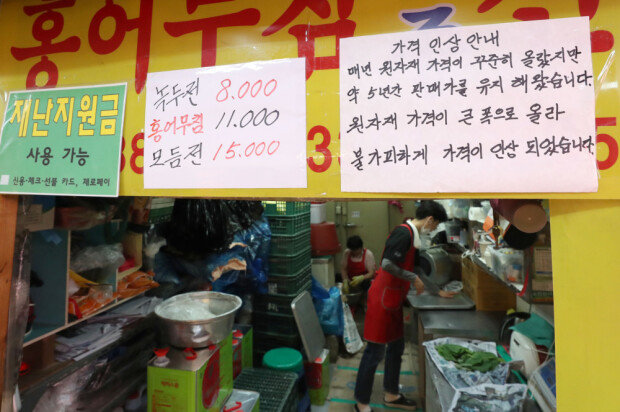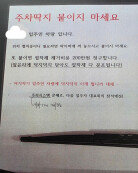The war on inflation begins
The war on inflation begins
Posted June. 04, 2022 08:59,
Updated June. 04, 2022 08:59

The Consumer Price Index rose 5.4 percent in May from the same month of the previous year. It is the highest in 13 years and nine months since the 2008 global financial crisis. Entering the 5 percent mark is also the first time since August and September 2008. The CPI for living necessaries soared to 6.7 percent. The Russian invasion of Ukraine and global export controls have driven up the prices of oil, commodities and agricultural, livestock and fishery products to have a huge impact on day-to-day living of Koreans.
Korea’s consumer price index seems lower than that of the U.S. and the Eurozone which are hovering around 8 percent. However, it should be considered about 2 percent higher than it is as Korea’s CPI does not reflect Owners' Equivalent Rent. When fees for electricity, gas, and transportation which have been controlled by the government reflect reality, the prices will go up further.
The Fed, which raised its benchmark interest rate by 0.5 percentage points last month, has begun quantitative tightening. It means it started to reduce the money supply floating around in the economy by selling bonds it bought to ease money in the wake of the Covid-19 pandemic. As early as next month, the European Central Bank is projected to deliver a rate hike of 0.5 percentage points, which is a big step in 22 years. During the past three months, central bankers across the world increased interest rates 60 times. The world has basically begun the war on inflation.
The Bank of Korea, which increased base rates for two consecutive months, will be difficult to avoid another rate increase. In a situation like this, the government has to reduce the inflationary shock for consumers and companies, but it is failing to come up with effective solutions. Early this week, the tariffs on seven items including flour and pork were reduced to 0 percent, which, in fact, has little effect in stabilizing prices as tariffs on imports covered under free trade agreements are already eliminated.
Deputy Prime Minister and Minister of Economy and Finance Choo Kyung-ho on Thursday urged economic organizational heads to “contribute as much as they can to containing prices.” It is pointed out as shifting the responsibility of cost increase to businesses. Companies are already pressured to increase wages. When employees call for salary increases as their lives got tougher due to inflation, companies increase prices of products to transfer the burden of the wage increase to consumers. If this continues to happen, the economy falls into a vicious cycle of inflation.
Winning the war against inflation involves absorbing excess liquidity through consistent interest rate hikes. During this phase, the government should collaborate with the Bank of Korea to come up with an optimal policy mix to prevent the economy from sinking into a recession. The main players of our economy such as employees, the self-employed, and companies, too, should not ask for too much.




![[광화문에서/김준일]단식 마친 장동혁… 중요한 건 단식 그 다음](https://dimg.donga.com/c/138/175/90/1/wps/NEWS/IMAGE/2026/01/23/133221688.1.jpg)

![라면 먹고도 후회 안 하는 7가지 방법[노화설계]](https://dimg.donga.com/c/138/175/90/1/wps/NEWS/IMAGE/2026/01/23/133219600.3.jpg)
